Finalist, 2016 Ethel Wilson Fiction Prize
-
Farsi rights sold to Pegah Books (Toronto)
Amity provides a window to the wreckage caused by wars—the destruction and displacement that leave pain and life-long psychological disorders, here specifically within the contexts of Yugoslavia’s dissolution and Iran’s revolution.
Payvand, an Iranian refugee and activist, still plagued with nightmares, meets a Ragusa, a Yugoslavian refugee whose pockets are loaded with stones as she prepares to walk into the water and end her life, a life that has become intolerable since the loss of those most dear to her.
Payvand listens to Ragusa’s story and Ragusa promises to postpone her suicide at least until she hears Payvand’s story in turn. In a novel that strives to raise awareness about the extent to which elites manipulate nations into wars, with total disregard for the lives of millions like Payvand and Ragusa, it is the warmth of personal relationships and friendships forged that are key to healing.
“Apart from being a beautifully written and heart-wrenching novel, this is an important book, a timely book that needs to be read and, read now. It speaks powerfully to the devastating anguish of families ripped apart by war and conflict, of loved ones tortured and killed — we hear the news, but it all happens outside of us, far away, and our empathy is unavoidably remote. The imagery in this novel is so vivid, I felt as if I were watching a movie, sitting with Payvand and Ragusa as they forged an unbreakable bond while retelling the stories of their shattered lives. When I finished the book, I felt as if they too were my friends, to be remembered and carried in my heart.”
—Lisa de Nikolits, author of A Glittering Chaos, The Witchdoctor’s Bones and Beneath the Cracks She Fell
From Chapter 1:
Dark night is on the trot, and now the austere greyness of dawn is fading as sunrise brightens a new day. The air is fresh and cool. A few cottages line the shore on this magnificent inland water of the mystic Pacific Ocean. Nearby, a fishing village awakes and begins its bustle of activity. The cottages, each surrounded by a good acre of beautiful flowers and greenery, face the water with their backs to a deep forest. The door of one opens and a woman slowly emerges, putting a note on the table at the door to let her love know that she did not sleep well and she needs to walk alone this morning. She puts on her shoes, stands tall, and takes a deep breath as she looks out at the horizon. Daylight is coming up, Payvand thinks.
She listens to the birds and feels the soft breeze on her skin. She smiles at the movements of life stirring within this new morning.
There are times when she would like to disappear and hide from all she knows, even everyone she loves and respects. She would go to places far away from cities, into the heart of nature where there is nobody to judge or talk to. She has a profound connection with nature. With all the challenges and anguishes in her life, if she did not have this romantic and bottomless bond with nature, she would be irreparably damaged or go into a deep depression. Nature is her absolute redeemer. It has been her greatest help whenever she needs to be alone or get away to rejuvenate.
Payvand looks up. It is still dark enough to see some stars shimmering in the sky. She wonders how far away they are. She gazes at the sky for a long time, happy in her certainty that there are other philosophers living their lives in orbit around their own sun or two up there somewhere. She whispers, “I hope they are doing better than us. Are they living like us? Are they more advanced or more primitive?” She contemplates how humans have come a long way through history with science and discovered much about the universe above and around them. She values how far humans have come in understanding the cosmos, yet fears how vulnerable humans are in this vast ocean of space, and despises how horridly humans treat one another.
Payvand sits contentedly on a chair in front of her cottage to enjoy the peaceful tranquility of this arm of the ocean embraced by dark arms of evergreen mountains. Listen to the birds chirping! She closes her eyes with a relaxed smile, as if those birds are singing only to her. No requests or demands; just soaring, dancing and singing simply to complement the new day. She takes another deep breath and looks out at the horizon as the sun comes up to craft a shimmering display on the water.
She gets up to begin her walk among the trees that are swaying quietly in the breeze. Perhaps that is why she always hated curtains, as they only hindered her view of sky and trees.
She loves to walk as the rising sun starts to colour first the tip of the mountains to a shiny golden yellow, then the top of the trees, and as it climbs up higher and higher, coaxing different reflections from the water. She feels as if she is one with this magnificent morning routine as she breathes in and fills her lungs with fresh air. “I am alive! I am part of this loveliness!” she says just loud enough for herself; and then she smiles and repeats it as she walks towards the nearby woods.
As she walks along the edge of the forest near the water, she sees a shadow shift among the trees. She stops and looks, then moves close. It is another middle-aged woman. Ah, another early bird who enjoys the morning, she thinks. She greets the woman and comments on the pleasant morning. The woman looks at her, nods, then turns her face away to stare out at the water.
The woman’s melancholy will brook no communion, so Payvand continues her walk beside the woods near the water, delighted by the loon filling the morning air with its clear, distinctive call. She feels that the loon too takes joy from the sunrise.
She walks for an hour, talking to the trees, singing with the birds, feeling the breeze and enjoying the warming sun, all the while doing her best to wash away last night’s nightmare. Returning toward her cottage, Payvand sees the same woman sitting on a log, still staring out at the water. She seems oblivious to the Payvands’s return, and appears so lost in misery that Payvand decides to settle on a nearby rock, just to observe and make sure the woman is fine.
As the morning breeze sighs in the treetops, Payvand keeps an eye on the strange woman, who appears to be a bit younger than herself; in her mid or perhaps late forties, though the lines of pain in her face make her look much older. What happened to her, Payvand wonders?
Finally, the woman looks up, her eyes filled with tears and she gives the Payvand a faint smile.
Payvand takes the opportunity to ask if she is okay, and if she would rather be left alone. With a shrug, the woman leaves the decision up to Payvand, who tentatively moves in a bit closer. Is she ill, is she confused, is any of this my business? She looks awful; maybe I should go and come back later. Oh, the woman is talking, about how she was forced to come here because her family and friends thought it would be good for her.
“But that’s true,” Payvand says brightly. “It really is nice here, don’t you think?”
The woman replies, “Oh sure, it’s nice. But by ‘here’ I meant back in the city. Whatever, it doesn’t matter. Life just isn’t worth living anymore.”
“Oh, I am so sorry to hear that you feel so down. You look so exhausted.”
“I’m okay,” the woman insists “Well, I’m fine. I’m tired…. I am … it is … .too much for….well, who are you anyway? Go away!” she turns her face, mumbling and crying at the same time.
Payvand wants to go, but it does not seem right. She stands up and asks if she can call someone and tells the woman that she does not look well.
“No! Please don’t call anyone…” and then the woman starts to talk passionately, a look of desperation on her face. She talks nonstop, with a tormented voice and a slight foaming in the corner of her mouth. Her emotions are overwhelming everything she says as she stumbles over the pain and sadness in her heart. Though the woman’s English is flawless, the speed at which she is talking makes it difficult for Payvand to catch a lot of what is being said. But Payvand can see that the lady’s words are honest and heartfelt in the midst of her misery and sorrow.
Payvand feels it is best not to stop her. Let her talk. Perhaps she needs a sympathetic stranger to listen to her, rather than the familiar faces who perhaps don’t really heed, who think they know what’s best, and fill the air with platitudes like, ‘It’s okay,’ or ‘There are situations worse than yours.’
Then suddenly the woman stops talking, looks over at Payvand and says, “I’m not making sense, am I?” Payvand smiles and assures her that she is happy to listen and eager to understand as much as possible. Then they both sit in silence together, allowing the beauty of the place to soothe their minds and calm their nerves.
Finally, Payvand asks, “You have a beautiful accent. What part of our world were you born in?”
The woman smiles and begins a narrative about how she was born in Croatia, one of six republics in the former Yugoslavia. She briefly relates a few impressions of childhood, and as she gets to her college years and marriage, her speech once again becomes faster and faster. She talks of a dead child and Payvand’s heart aches to once more hear the pain and suffering in the woman’s voice. She tries to listen carefully and put the dots together. Soon the woman falters as she becomes aware of Payvand intently trying to understand her. The woman sheepishly concedes, “I am not making sense again, am I? You look confused. I’m sorry.”
Payvand nods and tells the woman not to worry, to feel free and comfortable and say whatever she wants to say. “But at the same time I would really love to understand everything you are trying to tell me. I am intrigued and I would like to hear your story.” Then, impulsively, she asks the woman if she has had breakfast.
They two women at one another over a lengthy pause. The woman says no, and that she does not remember when she last ate.
Payvand invites her over to the cottage for some hot tea and a chance to start the discussion again. “I really do want to hear about your life; I want hear it from your true beginning, when your genuine life came under your own control.”
The woman contemplates this, then asks, “What do you mean by starting with my genuine life?”
Payvand explains her belief that each person’s genuine life begins when she becomes aware that she is on a journey and that she should be giving thought to meaning and values. “Sure, we were all born to a family and grow up with our parents and siblings or whoever was around,” Payvand explains, “but when we begin to learn of love, and pain, and adventure within our own circumstances, that is the time when we start to make sense of who we are. That is when we start to ask questions like, what is our involvement in this world? What are our goals and what are we trying to accomplish within this one life, the only one we have? Start from there. When you thought: this is it, this is what I want, and my life’s adventures and goals begin from right here. Who were you then and what path led you to become who you are now?”
The woman smiles and after a prolonged silence, yields to the plan. “Actually a tea would be nice, but on one condition only. After we are done talking, you must walk with me right back here, kiss me goodbye, and then please leave me to my own devices.”
Payvand agrees and asks if her family will be picking her up here.
“No, no one knows I am here,” the woman replies.
Payvand looks at her quizzically, but assents to her wishes.
The woman has difficulty getting up and when Payvand rushes to help her she is shocked by how heavy the woman is. “Goodness, how How long have you been sitting here?” she asks.
“The whole night…”
The woman’s physique is small, yet she moves with a peculiar weightiness. She becomes conscious of Payvand’s questioning gaze and then with a cheerless and tender smile, she starts to empty her pockets of bulky rocks.
Payvand frowns. “What were you trying to do? Did you want to walk with these rocks in your pocket into the water? Were you trying to…? Oh! My!”
There is a long stillness. Then the two women calmly continue to remove all the rocks, which fill to bursting the pockets of the woman’s two layers of jackets. Neither say a word until they finish the task, and begin walking towards Payvand’s little cottage.
After a few minutes, the woman stops and firmly states, “I will come back here and you will forget about what you have seen or who you have seen! You promise me, or we part ways right here!”
Gently, Payvand holds the woman’s hands in hers and says, “Your life is yours and yours alone, and your choice to carry on or leave it is entirely up to you, I promise.” She motions to the door of the cottage and adds, “Now, shall we go in?” Payvand turns and, without looking back, enters through the door.
After a long moment’s consideration, the woman finally follows.

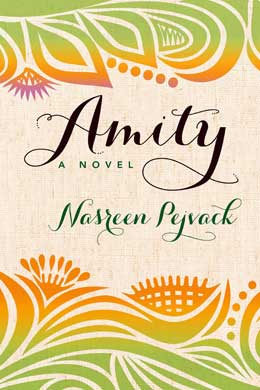

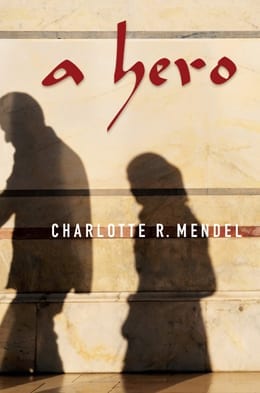
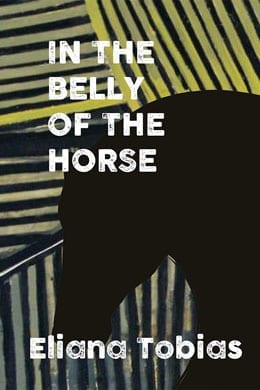

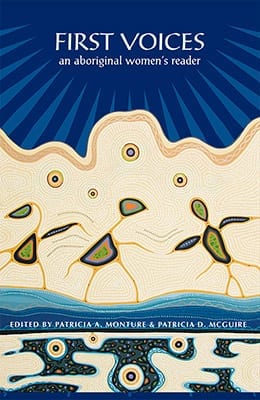
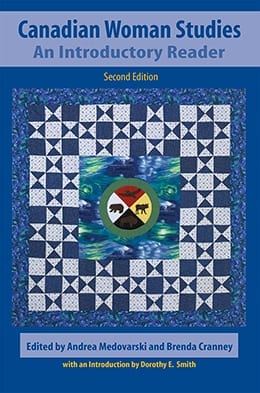
inannaadmin –
Political Upheaval Brings Women Together in Healing
reviewed by Maria Assaf – New Canadian Media – June 2, 2016
http://newcanadianmedia.ca/item/35183-political-upheaval-brings-women-together-in-healing
Imagine being a child bride in pre-revolutionary Iran – suffering abuse on a daily basis, being forced into a joyless marriage and having children at the age of 13. There is no law or organization that can protect you, as the entire affair is perfectly legal.
Now, imagine having a beautiful husband and children, a mother and father, and then losing them all in a genocide.
What hope could remain in a human heart after enduring such calamities?
Could an intense desire to right the wrongs or change the world bring back life to a suffering soul?
In Amity, author Nasreen Pejvack makes her reader wrestle with such questions, page after page, as she recounts both the painful and happy memories that form the lives of her two main characters: Ragusa, a survivor of the Yugoslav ethnic conflicts of the 1990s, who is on the verge of taking her own life, and her unknowing rescuer, Payvand, who is an Iranian activist with a tragic life story of her own.
Paradox of the West
Amity shows that there are moments in some peoples’ lives in which hope does not materialize from suffering. There are times when the soul has been so utterly shattered, that the mere suggestion of finding meaning within its pain is insulting.
Pejvack presents a panorama of a Western world – with its affluence and the seeming peace of its clean streets – which hides many truths and stories of refugees or others who have fled conflict and reached what seems like a safe haven.
As the stories in Amity show, the suffering of many of those individuals will not cease once they have a Canadian passport or British citizenship. The marks that their pasts have left on their souls will accompany them forever, like a shadow surrounding the most trivial moments of their lives.
Yes, many of them have been saved; the lucky few have even re-married in their new countries and found jobs and successful careers. But who can take away the pain of the memories, the tears, and the nightmares that keep survivors trapped in their minds as if in a prison of their pasts?
Pejvack’s book is heartfelt throughout. It is honest and direct and her phrases are simple, clear, and concise.
For those readers who are fortunate not to have suffered the misfortunes of war, oppression and tragedy, this book will provide insight into the lives of the millions of people worldwide who are experiencing similar fates as Ragusa and Payvand.
Understanding each other, and the world
Amity is a testament of sympathy with victims and the experience of sharing an understanding of tragedy and pain; of expressing empathy towards those who feel that no one could possibly understand the depths of their suffering.
This book grabs the audience’s attention rapidly, with its strong life stories and its vibrant political, economic and historical debates, made intentionally easy to read.
Her book is incredibly timely and relevant in the context of the present turmoil in the Middle East.
The writer’s political debates illustrate the evils that have plagued Iran and the nations that formed the former Yugoslavia, creating strong sentiments between two women who shared impassionate days and brought joy to each other in their pain.
The book succeeds at making the audience care about global politics and the way it creates wars that lead to the kinds of crises that have made these two protagonists suffer so much in their lives.
As Payvand tries to pull Ragusa back to life by telling her stories, this book also grabs the reader’s attention and curiosity from the beginning by making us want to learn more about the fascinating characters Pejvack describes in each chapter.
For those interested in the histories of the places where conflict has struck recently, this book embarks on detailed accounts of Iran’s recent past, explaining how the country came to be what it is now.
Pejvack’s explanations are nuanced and politically knowledgeable. Her book is incredibly timely and relevant in the context of the present turmoil in the Middle East.
… Pejvack writes in a way that is every bit poetic as it is political and invites people to care, to take action, and to participate in her revolution.
Call to action
Each of Pejvack’s characters is an activist in her own right.
Ragusa, a Croat, married a Serb – something inconceivable during tense times in which Croatian and Serbian populations were at war.
Payvand, an Iranian revolutionary, had to see her comrades die and experience the disappointment of witnessing the onset of what she calls an ignorant revolution.
From the portrait of violence Pejvack presents comes a call for revolution. Formerly a writer and poet for an underground activist publication in Iran, Pejvack writes in a way that is every bit poetic as it is political and invites people to care, to take action, and to participate in her revolution.
The call for unity regardless of nationality and other differences is one of the most beautiful premises this book proposes. This work is a must-read for inspired young citizens of the world, as Pejvack appeals to those who are trying to make a difference and are in need of some accessible guidance on how to contribute positively to the world.
Maria Assaf is a Colombian-Canadian freelance reporter who writes for Latin American, Filipino and other immigrant publications in Canada, including New Canadian Media. She completed her bachelor’s degree in journalism at Ryerson University and is currently pursuing a master’s degree in development and emergency practice at Oxford Brookes University, where she is researching refugee freedom of expression.
Renée Knapp –
Amity by Nasreen Pejvack
MacroMicroCosm Literary & Art Journal Vol 5, Issue 3 – June 20, 2019
https://www.youtube.com/watch?v=7ZAp7Sh5X5o&app=desktop
Excerpt:
Amity clings and hovers over the mind…it should be kept sacred…A sign of our times.